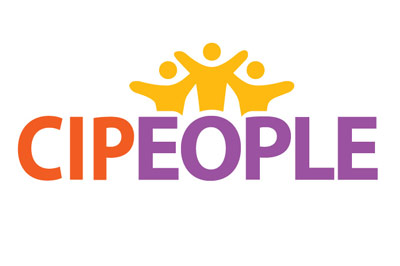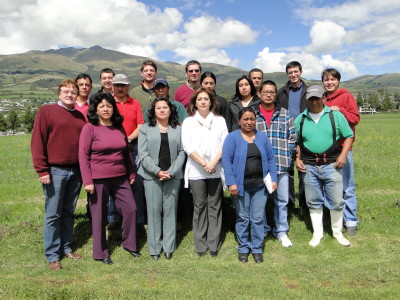Working with Roots and Tubers at CIP goes beyond the merely scientific realm, as there are jobs in all disciplines, including finance. Yolanda Yépez Urbano is the Administration and Finance Officer for CIP’s Latin America and the Caribbean (LAC) regional office located in Quito, Ecuador. She has preferences when it comes to potatoes, loving the native variety called “Yema de huevo” which is used in her favorite dish, au gratin potatoes (potatoes baked with cheese and cream!).
cream!).
Yolanda, an Ecuadorian born in Quito, started her studies at the local Catholic University, with an undergraduate degree in accounting and auditing. Then she went on to receive her Master’s Degree in Financial Direction from the Industrial Organization School (EOI) in Madrid, Spain. She also has experience working with international non-governmental organizations such as: International Union for Conservation of Nature (UICN), Swiss Agency for Development and Cooperation (COSUDE), Inter-American Development Bank (IBD), IBIS Denmark, and The East West Management Institute with the United States Agency for International Development (EWMI-USAID).
Yolanda learned about her current position from an e-mail that was shared by certain networks announcing the vacancy at CIP. For her, CIP is a “great international organization dedicated to research aimed at achieving food security for the future of people from developing countries.” She saw the opportunity to collaborate with an important institution like CIP while advancing in her career and learning about potatoes, roots and tubers. In her current position, Yolanda has the opportunity to be part of many CIP activities and projects. “One of the biggest challenges of the job was to perform multiple tasks in different areas such as administration, finance, human resources, logistics and research.” Her work includes providing advice and support to colleagues and partners from different projects or activities.

In the nearly three years that Yolanda has been at CIP, one of her favorite memories is of a trip taken to Lima. “In June 2013, there was a training event at CIP Headquarters to teach us about the new administrative and financial OCS system. My colleague and I had breakfast at the hotel with a friendly group of visitors from Africa. Afterwards we were supposed to take the bus that would take us from the hotel to the CIP-HQ offices; but as we were at the door waiting for the bus, the hotel host told us that it had already left, so we took a cab. We eventually found out that the friendly African visitors were actually colleagues from CIP’s Sub-Saharan Office! They had thought that they were the only members supposed to travel on the bus and had left, leaving my colleague and me behind. They were very apologetic for the misunderstanding, but at the end that incident helped us to start a nice friendship.”
“If I could tell anyone something about CIP, I would say that it is an organization where every single member of the staff is committed to their research work in order to provide food for future generations around the world,” says Yolanda, who sees CIP as a place where staff can grow in many areas. “It is an amazing organization to work for: you can develop a professional career here, as well as getting to know other cultures and making friends for life.”
